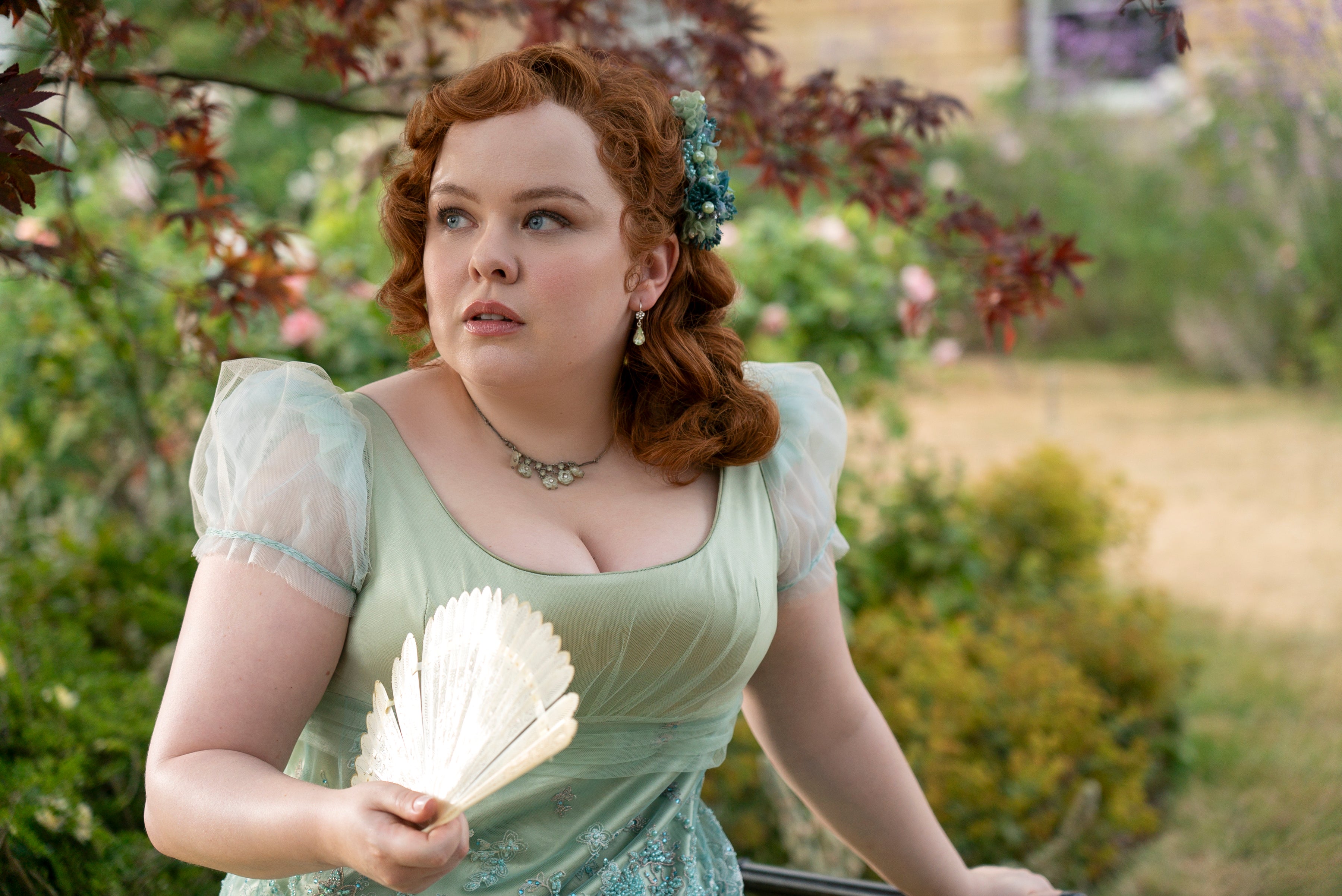Bridgerton season three review: Nicola Coughlan is superb – but Netflix show is losing its bite
The writing in this third chapter is particularly flimsy, while the production design looks increasingly like the hyper-saturated, uncanny results produced by an AI tool
The Bridgertons: a society family living, and thriving, in 1800s London. The Ton, as the upper-class set is known, is a marriage market, and the Bridgertons are serving up some of the city’s finest debutantes. With eight children, there are plenty of opportunities for the family to progress – and there’s plenty of opportunity for Netflix to squeeze material out of its corseted characters. But, returning after a two-year absence, has some of the air gone out of the Bridgerton balloon?
With the eldest daughter and son successfully married off, the saga of Bridgerton turns now to sensitive Colin (Luke Newton). But even though Colin has the crucial surname (and “many people would do much worse to be connected to the Bridgertons”, as Polly Walker’s Baroness Featherington observes), the story really belongs to Penelope (Nicola Coughlan). She’s the bookish youngest Featherington sister, and author of the show’s central mechanic: Lady Whistledown’s gossip rag. Colin, returning from a grand tour of Europe, elects to play “marriage whisperer”, coaching Penelope to improve her prospects. But these meddling efforts soon unravel, as Penelope’s unrequited feelings for Colin begin to generate some reciprocal interest.
Each season of Bridgerton has, essentially, followed the dynamics of a Jane Austen novel. The first – in which a haughty duke learnt to let his guard down – evoked Pride and Prejudice. The second, with two sisters demonstrating differing but complementary romantic qualities, drew from Sense and Sensibility. And this third season is a take on Emma. “You’ve never been one for silly romances,” Colin says to his sister, Eloise (Claudia Jessie), when she name-checks the book. “Perhaps my tastes have changed,” she replies. Emma – a novel about the perils of tending to other people’s gardens before you tend to your own – starts to exert its pull over the narrative.
But where Emma stands as one of the great novels of the 19th century, the third chapter of Bridgerton has a fundamental issue. The show has always indulged in a swoon-worthy atmosphere, with a central romance confected purely for reasons of chemistry. Now that the focus has turned to Colin and Penelope, however, the dynamic is less solely obsessed with the dissolution of emotional walls. These characters, who have played important roles in the marriages of Daphne and Anthony in prior seasons, are not unknown quantities. The sparks that fly must jump the hurdle of plausibility that has already been set.

And then there is the Colin-shaped problem. Where Phoebe Dynevor’s Daphne was a naïf broken down by the strictures of her repressive society, and Jonathan Bailey’s Anthony a rake meeting his match, Colin is, well, a bit dull. That is why the emotional heavy-lifting falls to Penelope, freshly ostracised from her only friend, Eloise, as her authorship of Lady Whistledown’s papers slowly leaks out. Coughlan is a superb screen presence and has long been one of Bridgerton’s strengths. But the elevation of Penelope from a wallflower, observing and critiquing the Ton’s society, to the show’s protagonist, does her a disservice. Not least because the character is deeply flawed, exploiting her friends and family for the vicarious thrills of tittle-tattle. But here, this longstanding conflict is largely suppressed in favour of something more quotidian, and viewers are expected to dull their scepticism about the quality of Penelope’s character.
It removes one of the – very few – sharp notes from Bridgerton’s flavour profile. The absence of Anthony (off gallivanting with his wife for a few more months) leaves a spot in theBridgertonroster occupied by returning sister Francesca (Hannah Dodd in a role recast for this season), a doe-eyed ingenue who finds herself the unexpected “diamond” of the season. “There is another Bridgerton making her debut this season,” Julie Andrews’s narration announces cryptically, but Francesca is much of a muchness with her sister, Daphne, and the rest of the Regency social set. Where previously Bridgerton demonstrated a raunchy streak – a combination of bonnets and buttocks – that set it apart from the generic tweeness of a matchmaking period drama, it has begun to descend into many of those banal tropes. The writing (never a huge strength) is particularly flimsy, while the production design looks increasingly like the hyper-saturated, uncanny results produced by an AI tool.
That all results in a show that established fans will slurp down, without ever really acknowledging the subtle differences in taste. But where Emma managed to stick the emotional landing – making its heroine flawed but likeable – Bridgerton seems to think that likeability involves the meticulous excision of all edge. For a show that marketed itself as Jane Austen with more bite, this third instalment could learn much from its forebears about how to really sink your teeth in.
Subscribe to Independent Premium to bookmark this article
Want to bookmark your favourite articles and stories to read or reference later? Start your Independent Premium subscription today.


Join our commenting forum
Join thought-provoking conversations, follow other Independent readers and see their replies
Comments